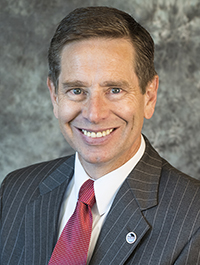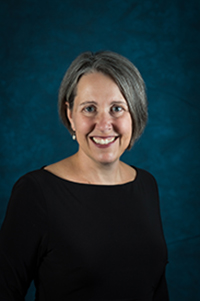They say they want an evolution
CPA exam is changing to adapt to digital era
Carol Hazard //March 29, 2020//
They say they want an evolution
CPA exam is changing to adapt to digital era
Carol Hazard //March 29, 2020//
Forget the CPA number nerds of the past with pencil marks on their starched white shirts. Tomorrow’s CPAs will be better versed in information technology, analysis and problem-solving techniques.
An evolution is taking place in the accounting industry to enhance analytical and critical thinking skills among future certified public accountants. The shift focuses on putting more emphasis on information technology and adding CPA areas of specialization in the licensing exam, while maintaining testing on core accounting principles.
“I am excited to meet the first crop of CPAs coming out of this model,” says Richard Groover, shareholder of Wall, Einhorn & Chernitzer PC, an accounting firm in Norfolk.
“We’re not looking for people to be able to recite our tax code,” says Groover, former chairman of the Virginia Society of CPAs. “We need a lot less memorization of facts and lot more utilization of facts.”
More than 2,000 stakeholders — from CPAs and accounting firms to trade groups, state organizations, academia and technology experts — are weighing in on the new CPA licensure model proposed by the National Association of State Boards of Accountancy (NASBA) and the American Institute of CPAs (AICPA).

“Our next step is to share this mostly positive feedback with our membership bodies this spring/summer for additional input,” says Daniel J. Dustin, NASBA vice president of state board relations.
“Due to advances in technology, newly licensed CPAs need to expand their understanding of systems, controls and data analysis in order to serve the rapidly changing client needs,” Dustin says. “We believe the currently proposed model will be adaptable and keep the CPA profession relevant for the future while maintaining strong public protection.”
Approval by industry regulators is expected this summer. While the final draft is nearing completion, the process will take three to five years to implement, CPAs say.
Tech transformation
The proposed licensing changes are designed not only to expand skill sets for CPA students but also to attract nontraditional CPA candidates.
Accounting firms in general are hiring the same number of people each year, but fewer are CPA candidates and more are new hires proficient in technology.
“We need to increase the pipeline of talent for the CPA profession to be sustainable and relevant,” says George Forsythe, a Virginia Society board member and a managing partner of WellsColeman, an accounting firm in Henrico County.
“It is in no one’s best interest to have a shrinking talent pool, either through age or a desire to go into different industries,” he says.
Nearly every industry — not just the CPA profession — is dealing with the explosion of technology, says Stephanie Peters, president and CEO of the Virginia Society of CPAs.

“With technology playing such a dominant role, transformation is occurring in many industries,” Peters says. However, it is particularly relevant in accounting since data analytics has become a central tool, she adds.
Traditionally, an auditor would sample financial transactions and assess whether the correct processes were in place. “Now, artificial intelligence can look at all data very thoroughly and pull out exceptions, so auditors can look at data sets and be precise about what needs to be fixed,” she says.
“An auditor’s ability to use artificial intelligence to analyze much more data will provide high-quality audits, which will give greater assurance to the users of financial statements that the company’s financials are accurate and have proper internal controls in place,” she says.
The ability to analyze data also provides greater insight into business operations and opportunities to operate more efficiently, Peters says. “The CPA evolution is looking at where we are going and what we need to build up skill sets.”
Areas of specialization
To be licensed, CPA candidates must tackle three areas of training: education, examination and experience. They must attain 150 credit hours (the equivalent of five years of college), pass a 16-hour exam and gain one year of work experience.
While changes to each of the three areas are being discussed by stakeholders, the focus now is on revising the nationwide uniform CPA exam.
Divided into four parts, each four hours long, the CPA exam has been updated periodically, Peters says. Under the proposed model, the three core sections would be updated and a new section will be added to address specialization.
However, Peters is also quick to state that the exam “is already long enough; the idea is not to make it longer.”
The proposed model would allow students to demonstrate core competencies as in the past — in disciplines such as accounting, auditing, tax and technology — but then, to demonstrate deeper skills and knowledge, they must choose one of the following specialization disciplines: tax compliance and planning, business reporting and analysis, or information systems and controls.
A CPA would not be wed to that specialty after earning a license.
Higher education responds
“Technology is changing at a very rapid pace, and I’m so proud of the accounting profession for embracing this change and continuing to evolve,” says Virginia Tech professor Nadia Rogers, director of Virginia Tech’s accounting and information systems program.
“The way in which companies and public accounting firms utilize technology to their advantage has significantly changed over the years; therefore, the skillset required of newly hired employees also has changed — and a resulting change in the CPA exam is necessary.”
Evolution is necessary so the accounting profession can continue to uphold its ultimate responsibility of protecting the public’s interest, Rogers says.
She notes that firms are spending “significant amounts of money” to train their current professionals on technologies used in the CPA industry. And graduates with “the extremely valued combination of technical accounting and technology knowledge” are highly sought after.
Virginia Tech now requires students at both undergraduate and graduate levels to take an accounting analytics course focused on critical thinking.
“It teaches our students how to analyze data, visualize data and be able to report the resulting information to users in a very meaningful way,” Rogers says.
Christopher Newport University has changed its curriculum as well, introducing a master’s degree for CPAs during the past two years.
“Part of the evolution process is starting to shape up,” says Gabriele Lingenfelter, a CNU professor who teaches auditing, principles of financial accounting and capstone case studies.
“We know what CPAs need, and we have been proactive,” she says. “We know it’s not the accounting or audit knowledge that we need to emphasize. It’s the soft skills,” such as analysis and problem solving.
Although the final version of the proposed model is in flux, colleges should begin to tweak their curricula, since changes of these proportions take years to implement, Lingenfelter says.
“Schools in general need to look at the curriculum and make sure it’s aligned with the new CPA model,” she said. “It’s never too early to start.”
The proposed change was introduced about 18 months ago by the AICPA, with feedback from NASBA.
“The licensing model now being discussed at state society and organization levels has a good chance of going forward,” says Gary Thomson, principal of Thomson Consulting in Richmond, chairman of the Virginia Society of CPAs and counsel board member of the AICPA.
“We have been doing road shows to go through the guiding principles and listen to our members,” Thomson says.
The Virginia Society of CPAs, which is gathering feedback from its 13,000 members, expects to vote on the proposal at a board meeting in April.
“I believe it will get through,” Peters says. “We’re been working on this for a couple of years. Everyone is supportive.”
Groover says the feedback has been spot-on. “We need data analysts and problem solvers. I have not heard anyone say we are going in the wrong direction.”
The profession is regulated by 55 state and jurisdiction boards, which would need to adopt the proposed model.
“It’s important that we keep up with technology,” says Nancy Glynn, executive director of the Virginia Board of Accountancy. “Big data and analytics are the way of the future.”
State boards issue licenses to CPAs and CPA firms based on licensure requirements. It does not administer the exam, but a candidate in Virginia would register to take the exam through the state board.
A total of 28,000 CPAs are licensed in Virginia, including 8,000 with home addresses outside of the state.
The starting salary for entry-level accountants is $50,000 a year, which can rise to well into six figures for senior managers over their careers, CPAs say.
Thomson, who recently retired from Dixon Hughes Goodman LLP after a 35-year career, says he is bullish on the industry.
“There has not been a better time in my life to be a CPA,” he says. “Clearly, we have work to do to evolve, but the opportunities are limitless and changing the CPA exam is one of many things to make it work.”
Since he became a CPA in the mid-1980s, the Internal Revenue Service’s code has grown to three times as many pages; accounting regulations have jumped fourfold; and auditing, five times, he says.
Transactions performed manually then on shared computers are now tabulated by software applications, Thomson adds.
“Part of the whole evolution is recognizing that we have to find ways of testing in a world that has changed a lot.”
e
















